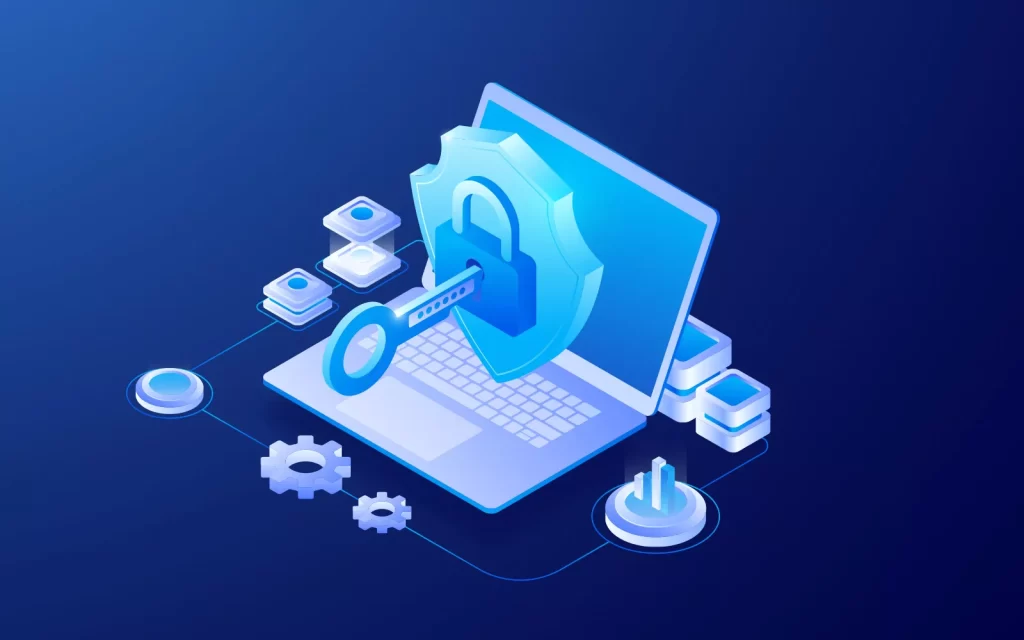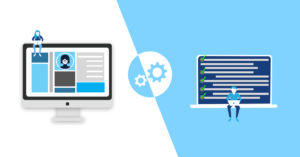Streamlining HIPAA Compliance and Boosting Lead Generation with a Healthcare Software Development Company
In today’s world, the healthcare industry is becoming more reliant on technology to manage patient information and streamline processes. In fact, there is no doubt that technology is rapidly changing the way the healthcare industry is catering care to the people.
With this fact, more and more healthcare institutions are depending on the technologies and looking for ways to improve their healthcare.
However, with the increased use of technology comes the need for compliance with regulations, such as the Health Insurance Portability and Accountability Act (HIPAA).
Here are some market facts that portray the progressive picture of the healthcare compliance software market…
According to the survey report, the global healthcare compliance software market size was valued at $2.8 billion in 2022 which is projected to grow at a CAGR of 11.6% during 2023 to 2030

HIPAA is a set of federal regulations that require healthcare providers to protect the privacy and security of patient information. Failure to comply with HIPAA regulations can result in significant fines, legal action, and loss of trust with patients.
As per survey reports, 30% of all major data breaches are hospital related. As of November 2022, the Office for Civil Rights (OCR) has settled around 126 cases of HIPAA violations valued at $133 million.
With these statistics above, it is clear enough that HIPAA compliance is important. But compliance with HIPAA is not as simple as it may sound. Healthcare providers face several challenges in achieving HIPAA compliance, including keeping up with changing regulations and securing their technology systems. Fortunately, healthcare software development companies can help healthcare providers achieve HIPAA compliance while also boosting lead generation.
But getting into the process of learning how healthcare software development companies can help you comply with HIPAA, let’s understand the baseline of this concept.
Understanding the Overview of HIPAA Compliance
HIPAA, or the Health Insurance Portability and Accountability Act, is a federal law that governs the protection of sensitive patient health information. HIPAA compliance is critical for healthcare providers, insurers, and other entities that handle protected health information (PHI).
The law mandates that organizations implement administrative, physical, and technical safeguards to protect PHI, including policies and procedures to ensure the confidentiality, integrity, and availability of this information.
Failure to comply with HIPAA can result in significant financial penalties and damage to an organization’s reputation. As such, organizations must stay up-to-date with HIPAA regulations and take the necessary steps to protect PHI.
Here is a quick video to understand what exactly is HIPAA Compliance…
HIPAA compliance requires adherence to three main rules: the Privacy Rule, the Security Rule, and the Breach Notification Rule. What exactly is it and how does it work? Let’s understand it in detail:
- The Privacy Rule outlines how patient information should be protected, including who has access to it and how it should be used.
- The Security Rule requires healthcare providers to implement technical and administrative safeguards to protect patient information, including electronic health records (EHRs).
- The Breach Notification Rule requires healthcare providers to notify patients and government agencies in the event of a breach of patient information.
Protected health information (PHI) includes any information that can be used to identify an individual, including their name, address, social security number, medical history, and more. The importance of PHI security cannot be overstated, as data breaches can have serious consequences for patients, healthcare providers, and healthcare software development companies.
Non-compliance with HIPAA regulations can result in significant fines, ranging from $100 to $50,000 per violation, and up to $1.5 million per year for each violation category. Additionally, non-compliance can lead to legal action and loss of trust with patients, which can ultimately affect a healthcare provider’s bottom line.
HIPAA compliance is a complex and ongoing process that requires ongoing training and vigilance. Covered entities must ensure that all staff members are trained on HIPAA requirements and that policies and procedures are regularly reviewed and updated to reflect changes in technology and healthcare practices.
So how can software development companies help you avoid these penalties and enable you to comply with HIPAA?
How Healthcare Software Development Companies Can Help Achieve HIPAA Compliance?
Healthcare software development companies play a critical role in achieving HIPAA compliance. These companies have the expertise and experience to design and develop secure software that complies with HIPAA regulations.
A secure software development lifecycle (SDLC) is essential for achieving HIPAA compliance. This includes risk assessments, penetration testing, code reviews, and more. Healthcare software development companies can assist healthcare providers with these processes to ensure that their software systems are secure and compliant with HIPAA regulations.
Healthcare software development companies can also provide ongoing support to healthcare providers to ensure that their software systems remain secure and compliant over time. This includes monitoring for vulnerabilities and addressing them promptly, as well as providing training to healthcare providers and their staff on best practices for maintaining PHI security.
Benefits of HIPAA Compliance for Lead Generation
HIPAA compliance can also provide significant benefits for lead generation. When healthcare providers are HIPAA compliant, they build trust with potential patients, who are more likely to choose a provider that takes patient privacy and security seriously. HIPAA compliance can also provide a competitive advantage in lead generation, as healthcare providers can promote their compliance as a unique selling point.
Healthcare providers can use various marketing and lead-generation strategies to promote their HIPAA compliance. This includes highlighting their compliance on their website and social media, providing patient education on the importance of PHI security, and offering additional security measures, such as secure messaging and two-factor authentication.
Examples of Successful HIPAA Compliance and Lead Generation Strategies
As healthcare providers continue to face challenges in achieving HIPAA compliance, many are turning to healthcare software development companies for assistance. These companies specialize in creating software solutions that meet HIPAA requirements, making it easier for healthcare providers to comply with regulations and keep patient data secure.
But achieving HIPAA compliance is not just about avoiding fines and penalties. It can also have a significant impact on lead generation and the success of a healthcare provider’s business. But here, we’ll explore some examples of successful HIPAA compliance and lead generation strategies and discuss how healthcare software development companies can help.
Secure Messaging for Better Patient Engagement
One of the biggest challenges that healthcare providers face is engaging patients and keeping them informed about their health. HIPAA compliance can help with this, as patients are more likely to trust providers who take patient data security seriously.
Secure messaging is one example of a tool healthcare providers can use to engage patients and build trust. By using HIPAA-compliant software to send messages, healthcare providers can ensure that patient data is protected while also providing a convenient way for patients to stay in touch. Patients are more likely to use a secure messaging system if they know that their data is safe, and this can lead to better engagement and improved outcomes.
Telemedicine for Remote Patient Care
Telemedicine has become increasingly popular in recent years, especially in light of the COVID-19 pandemic. However, telemedicine also presents some unique challenges when it comes to HIPAA compliance.
Healthcare software development companies can help providers overcome these challenges by creating custom telemedicine solutions that meet HIPAA requirements. These solutions can include secure video conferencing, encrypted messaging, and secure file sharing, all of which can help providers offer remote patient care while keeping patient data safe.
Telemedicine can also be an effective lead-generation strategy, as it can help providers reach new patients who may not have access to traditional healthcare services. By offering convenient and secure telemedicine options, providers can differentiate themselves from competitors and attract new patients.
Marketing HIPAA Compliance for Better Branding
HIPAA compliance can also be an effective branding tool. By promoting their compliance efforts, healthcare providers can build trust with potential patients and differentiate themselves from competitors who may not take data security as seriously.
Healthcare software development companies can help providers with this by creating custom marketing materials that highlight their compliance efforts. This can include website copy, social media posts, and email marketing campaigns, all of which can help providers promote their commitment to patient data security.
By marketing their HIPAA compliance efforts, healthcare providers can improve their brand reputation and attract new patients who value data security and privacy.
Conclusion
Achieving HIPAA compliance is essential for healthcare providers who want to protect patient data and avoid penalties. But compliance can also have a significant impact on lead generation and the success of a provider’s business. By using healthcare software development companies to create custom solutions that meet HIPAA requirements, providers can offer better patient engagement, remote care options, and marketing materials that promote their commitment to data security. In doing so, they can build trust with potential patients, differentiate themselves from competitors, and improve their overall business success.




